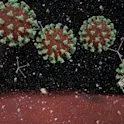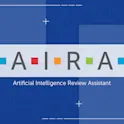Science for all with compatible AI
Watch Mirjam Eckert, chief publishing officer at Frontiers, introduce the publisher and demystify its machine learning tool. With thanks to the Gottlieb Duttweiler Institute. Photo credit: Frontiers Human compatible Artificial Intelligence (AI) could empower us all. But public trust in good science will be key. At Frontiers, we apply AI to help build that trust. Our Artificial Intelligence Review Assistant (AIRA) verifies that scientific knowledge is accurately and honestly presented even before our people decide whether to review, endorse, or publish the research paper that contains it. AIRA reads every research manuscript we receive and makes up to 20 checks a second. These checks cover, among other things, language quality, the integrity of figures and images, plagiarism, and conflicts of interest. The results give editors and reviewers another perspective as they decide whether to put a research paper through our rigorous and transparent peer review. We face global, existential threats, from health emergencies to climate change. We can manage and reverse these threats, for healthy lives on a healthy planet – with political will, global collaboration, and scientific breakthrough at a scale not yet seen. On all those counts, success will depend on the widespread sharing of the latest […]














